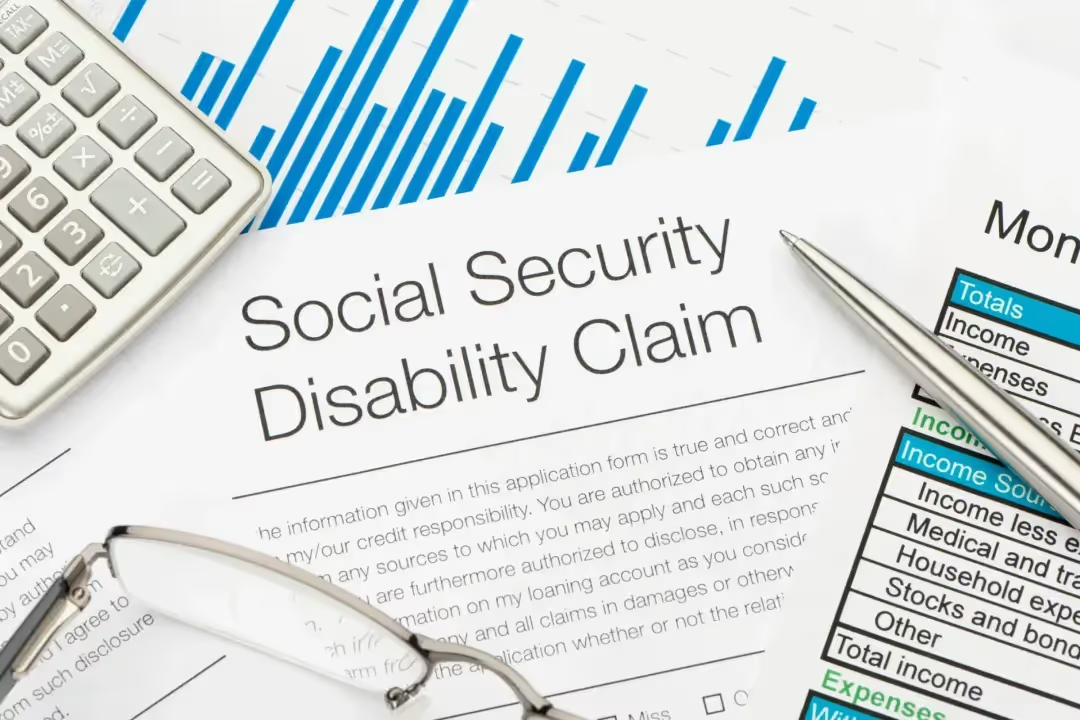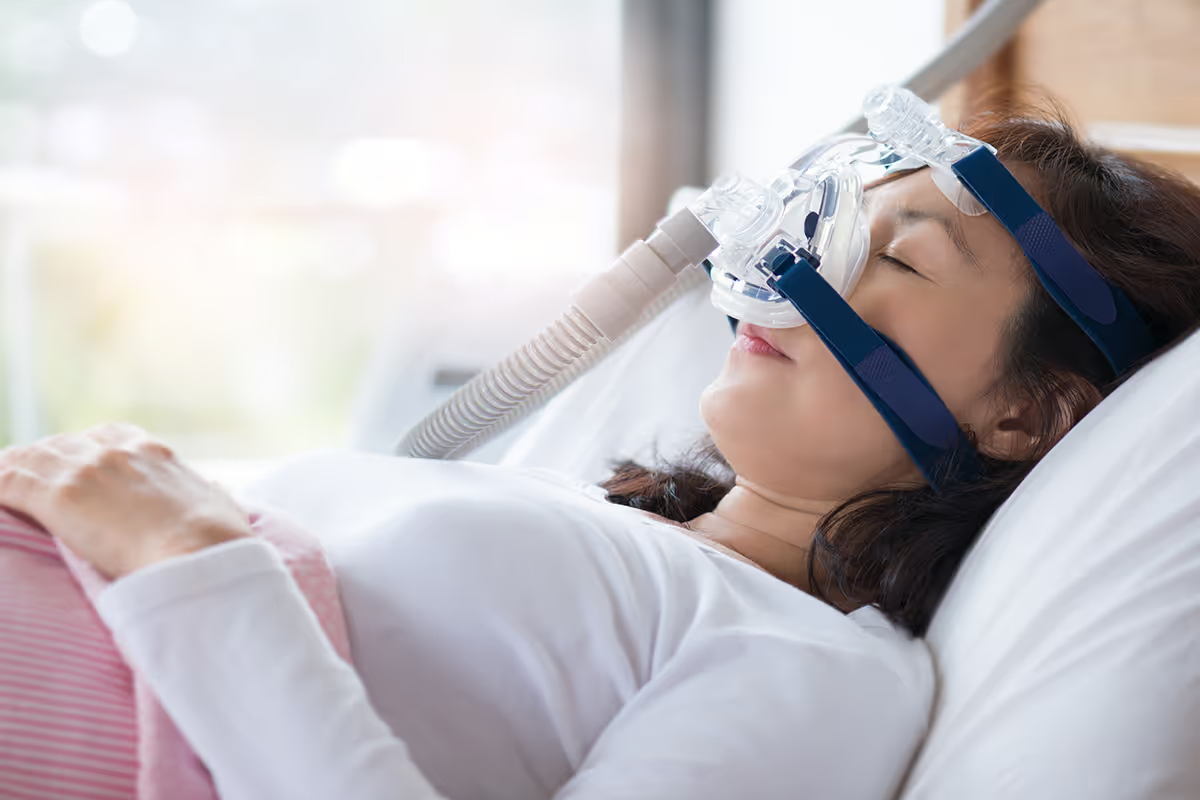By Jordan Stern, MD
Disability Benefits for Sleep Apnoea are Challenging but Possible
While Sleep Apnoea is a condition that impairs one’s ability to lead a healthy life, many patients want to know if the Social Security Administration (SSA) will provide benefits if you suffer from Obstructive Sleep Apnoea (OSA). The SSA does not consider Sleep Apnoea a disability, but it recognizes that severe Sleep Apnoea leads to symptoms that qualify for benefits–namely heart diseases; breathing disorders; or mental issues. Your first step is to get tested and treated for Sleep Apnoea by a Sleep Specialist like BlueSleep. The success rate for treatment is high, thereby precluding benefits, but some people with severe Sleep Apnoea qualify for benefits.
You Need a Medical Diagnosis
Lawyers specializing in disability law will help you navigate the SSA requirements, but we know that Sleep Specialists, Cardiologists, Mental Health providers, and other medical doctors have an important role in your case. To prove your medical case, you must have a medical diagnosis of Sleep Apnoea that’s severe enough to keep you from working. The SSA requires that you’ve had your disability for at least 12 months in the past, or that doctors predict you’ll have the disability for at least 12 months. So, the first requirement is to get tested for Sleep Apnoea by a medical doctor.
You Need Medical Evidence of a Disability
At BlueSleep, we record your medical history and symptoms and offer a home sleep test to gauge the severity of your problem. For treatment, we may recommend Continuous Positive Airway Treatment (CPAP) or Oral Device Therapy (OAT) and then follow-up with a home sleep test to measure your improvement. The SSA will want all these records, including continuing usage data of your CPAP machine. If you suffer from heart problems, memory issues or mental health issues, you must show proof of a qualifying condition such as pulmonary hypertension and cor pulmonale. And, you need specific tests to support your condition. For instance, the SSA wants to know that your mean arterial pressure is above 40 mmHg on a cardiac catheterization test.
You Need Medical Notes that You’re Unable to Work
Secondly, the SSA wants to know if your Sleep Apnoea is severe enough to prevent you from working. Sleep Apnoea patients struggle with daytime sleepiness that impairs work. For truck drivers and operators of heavy equipment, Sleep Apnoea is not only a work hazard, but life threatening. The SSA requires notes and recommendations from your medical record that may read, “Excessive daytime sleepiness and fatigue.” Or, “The patient should not lift objects over 50 lbs or drive long distances.”
The SSA will also conduct a Residual Functional Capacity Assessment (RFC) to review how fatigue affects your work performance. If you can’t perform your current job, the SSA may recommend less physically demanding work, like a “desk job”, taking your age, job history, and education into consideration. After a lengthy investigation you may be awarded benefits.
You Must Meet Specific Medical Criteria
Meeting the eligibility standards requires very specific criteria. The SSA is more likely to approve benefits for Sleep Apnoea symptoms that lead to breathing disorders, heart problems, and mental issues. These sections of the SSA disability evaluation are very specific and must be well documented with doctors’ notes and medical tests:
3.09 Chronic pulmonary hypertension: A cardiac catheterization shows that your mean pulmonary artery pressure is equal to or greater than 40 mm Hg.
4.02 Chronic heart failure/cor pulmonale (right-sided heart failure): Symptoms of pulmonary congestion; systemic congestion; limited cardiac output with abnormal findings on medical imaging.
12.02 Severe cognitive deficits, mood disturbances, or behavioral issues: Neurocognitive disorders that affect memory; judgment; planning; interacting socially; using language.
The Long Road to Disability Benefits
BlueSleep provides care, not legal advice. Applying for disability benefits may require professional help. Legal experts such as Quickaid can help guide you through the process. Here’s a brief synopsis:
Step 1: Non-Medical Criteria
To be eligible for benefits the SSA says you can’t be making more than $1,090 in gross monthly income. This is called the Substantial Gainful Activity (SGA) rule.
Step 2: Severe Impairment
The SSA wants to know if your Sleep Apnoea is severe. You’ll have to show proof of a Sleep Apnoea Test; complete Daily Living and Vocational questionnaires; and the adjudicator may schedule a Consultative Examination (CE) with a doctor of their choice to perform an exam.
Step 3: Medical Listings
The SSA determines if your Sleep Apnoea meets their requirements of a medical Listing of Impairments. As discussed above, you must have medical records from a doctor that you suffer from a respiratory impairment like Cor Pulmonale or Chronic Pulmonary Vascular Hypertension; heart problems; and/or mental disorders.
Step 4: Past Work
The SSA identifies if you can perform work you’ve previously done. The adjudicator determines your Residual Functional Capacity (RFC) taking into account your medical conditions, including Sleep Apnoea. They evaluate your ability to communicate, understand, and remember information. They will list your work in the past 15 years preceding the Alleged Onset Date (AOD) of your disability and classify each job by exertion and skill level. In short, if you can still perform any of these jobs, you will be denied benefits, but you have the opportunity to appeal.
Step 5: Other Work
The adjudicator then determines if there is another type of work that you may perform. The SSA will review your education level, age, and work experience and evaluate if you can transfer any skills and abilities from your past work to a new job. In summary, if you’re older; less educated and have few transferable skills, you are more likely deemed Disabled and qualify for benefits.
If the SSA determines you’re severely impaired and can’t hold a job, you’ll be awarded benefits or a Medical-Vocational Allowance. Payments range on average between roughly $1,000-$2,000 a month with a maximum of $3,627 plus 12 months back pay if you qualify.













